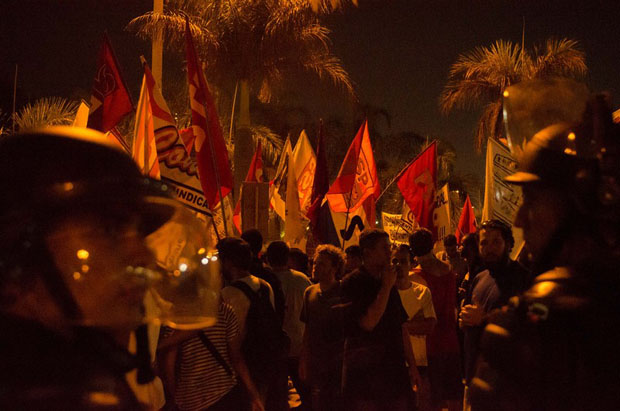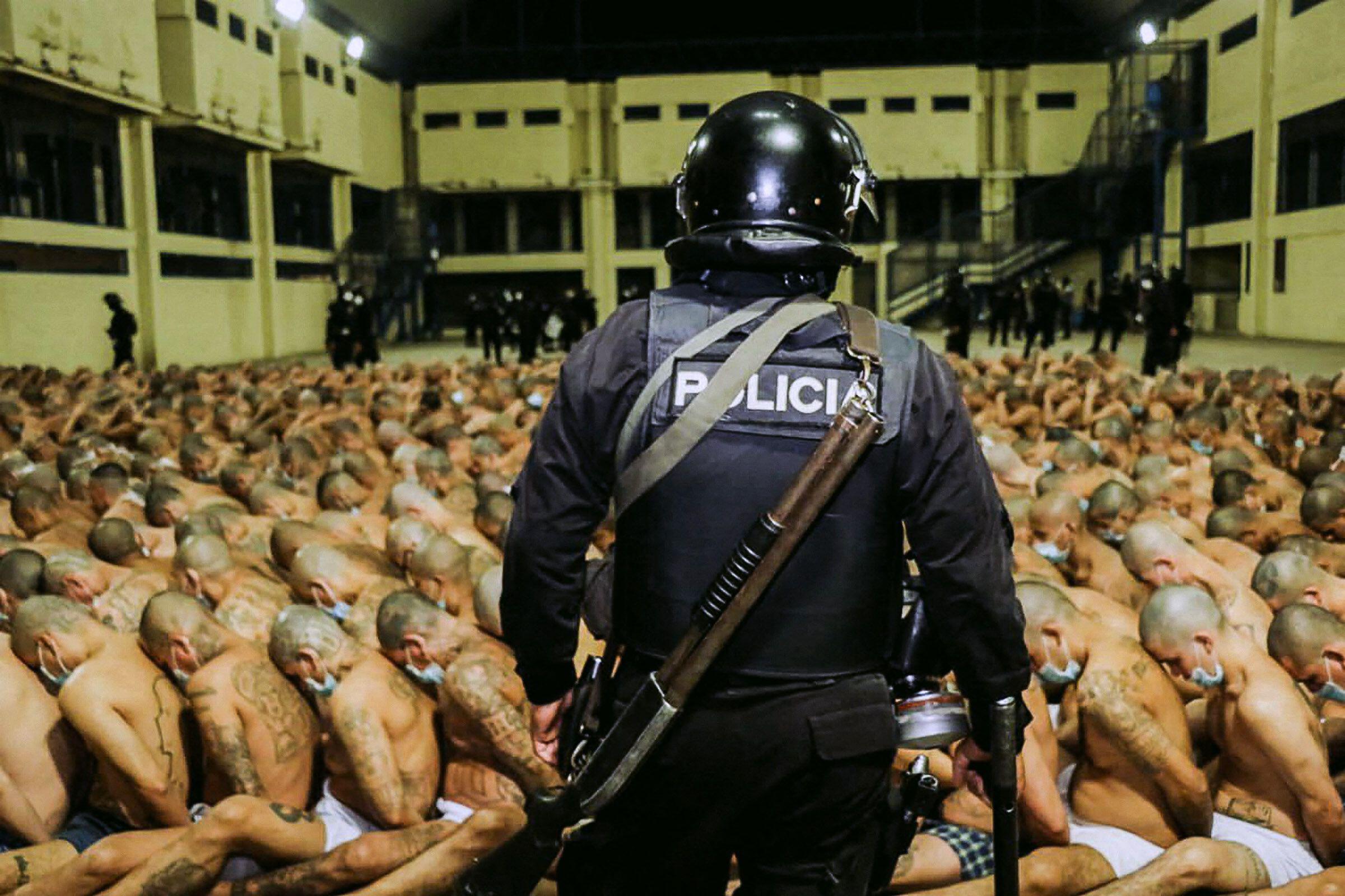
Protests against increase in public transportation costs in Rio de Janeiro on 13 February (Image: Mauricio Fidalgo/Demotix)
On Friday 14 February, Brazil’s Minister of Justice, José Eduardo Cardozo, announced a bill to regulate safety measures during protests. The bill allows for use of force by the military police and punishment for violent actions during demonstrations, and will be sent to congress for consideration in the coming days. The move comes after the death of Bandeirantes Network cameraman Santiago Andrade on 10 February, from injuries sustained covering a protest. This is the latest move by Brazil’s government to control popular discontent ahead of this summer’s FIFA World Cup.
The government is rushing vaguely worded, extraordinary bills defining “terrorism” to the floor of congress. Currently, there are no specific laws for the crime of terrorism in Brazilian legislation. Crimes are classified in the National Security Act, created during the military dictatorship. A number of bills tackling this issue, which could potentially penalise protest actions, are now being debated in congress, without input from the population.
A street protest against rising bus fares in Rio de Janeiro on 6 February erupted in violence, when gas bombs and fireworks thrown by some demonstrators injured seven people, including Santiago Andrade. The cameraman was hit by a rocket firework launched by two protesters, which burst over his head. He later died from the injuries, and the two protesters were arrested in controversial circumstances.
The incident generated national uproar. Congressmen called the protest an act of terrorism and promised action. A number of figures within the Brazilian government, including President Dilma Rousseff, condemned the “escalating violence in protests”. Citing public security, congress moved quickly to table bills aimed at defining actions in public places — both violent and non-violent — as terrorism. Bill 499/2013, which has been fast tracked for consideration, defines terrorism as “causing terror or widespread panic” and threatens penalties of up to 30 years. The bill further stipulates that acts of terror committed with explosives increases the penalty by one third. It also criminalises “Black Bloc” protest groups, and wearing masks. Legal experts have criticised the bill for its vague language which leaves room for wide interpretations. Further, critics contend that it shows the government’s intent to use the bill as a tool to suppress popular protests during the World Cup.
The controversial Bill 728/2011 was created to punish “infractions” committed during the World Cup. In its text, acts of terrorism are associated with religious or ideological positions, and it also limits Brazilians’ ability to strike. The bill was nicknamed the AI-5 Cup, after the 1968 AI-5 act, which in gave extraordinary powers to the then-president and suspended key civil and constitutional guarantees for over 20 years. Under pressure from Brazil’s civil society, 728 was shelved.
Still under consideration in congress, however, is Bill 236/2012 — an anti-terror project that promises to modernise Brazil’s penal code, which dates from 1940. While it categorises terrorism, 236 does not define it. Among its most dangerous threats to freedom of expression is the criminalisation of disturbing the peace, and damage to public property by “vandals” and “vagrants”. The bill does not further define or clarify these terms.
Former justice minister Miguel Reale Jr, a renowned jurist and professor of law at the University of Sao Paulo, criticised the law’s “legal nonsense” and labelled it a setback for journalism. The bill would criminalise defamation and impose four year sentences without adequately defining this offence. He has launched a campaign against it, which has gained support from the legal community.
Bill 236 also contains “crimes against sporting and cultural events”. Any person who promotes “tumult” within 5 km of a sporting event would be imprisoned for up to two years, and the bill would also block protest access to the sport or cultural venue for up to three years. If applied, any popular protest on game days could be banned.
But whether or not some or all of the bills are passed, President Rousseff looks set to be able to curtail protests. On 20 December, a manual on the enforcement of law and public order, put together by the Ministry of Defence, entered into force. The manual defines “opponent forces” as persons, groups or organisations that provoke radical and violent actions, and cites the blocking of public streets as a major threat. Under certain conditions, the manual allows the president to give police powers to the armed forces.
Brazilians who wish to take to the streets, could have an interesting spring.
This article was posted on February 17, 2014 at indexoncensorship.org





